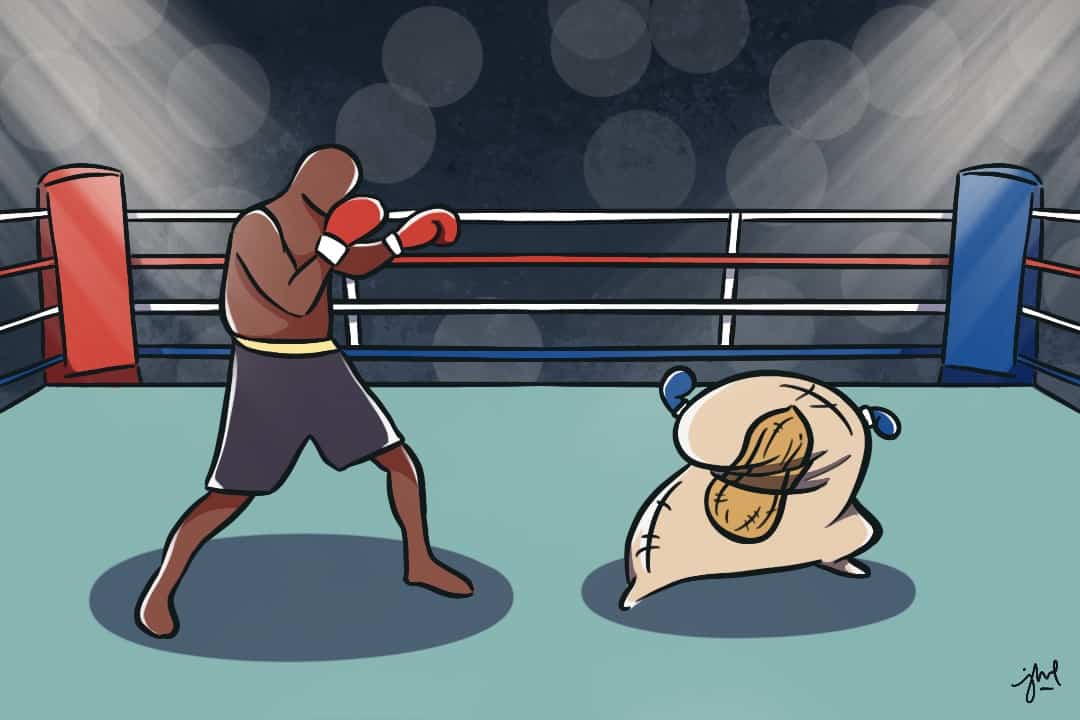With the 2022 World Cup in full swing, athletes may be contemplating the dangers of another type of play: sexual activity. The superstition that having sex is detrimental to athletic performance likely emerged in Ancient Greece and Rome, where it was widely believed that sex depleted men’s testosterone and energy. Specifically, they believed the loss of testosterone from ejaculation would reduce aggression and muscle strength.
These beliefs still hold some sway over athletes and coaches in the twenty-first century. Professional wrestler Ronda Rousey once said that before she fights, she has as much sex as possible to raise her testosterone levels. In the lead up to the 2014 World Cup, four teams — Bosnia and Herzegovina, Chile, Mexico, and Russia — prohibited their players from engaging in sexual intercourse. All four teams were eliminated in the knockout stage.
Scientific research largely does not support this superstition, but the effect of sex on athletic performance is also largely understudied.
The research
The first study on sex and physical performance, conducted in 1968, involved 14 women former athletes. The researchers tested the women’s muscular strength and endurance twice: the morning after sex and after at least six days of abstinence. They found no evidence that sex negatively affected strength or endurance.
One 1995 study did find a slightly negative effect of sex on physical activity. Up to two hours after participants engaged in sexual activity, researchers tested their aerobic fitness on a treadmill and found a significant increase in heart rate in the recovery phase. However, when the researchers tested the participants again ten hours after sex, they found no differences in recovery heart rate.
A systematic review and metaanalysis in Nature, published in September 2022, examined all the relevant scientific evidence on the effects of sexual activity — including sex or masturbation — on physical fitness. The review found no such effects when participants engaged in sexual activity 30 minutes to 24 hours before researchers assessed their physical performance. The assessments measured aerobic fitness, musculoskeletal endurance, or muscular strength or power. However, the review drew from only nine studies and emphasized the need for further high-quality research.
Research limitations and gaps
The results of these studies are likely not generalizable to the whole population. The majority of studies on this subject have been conducted on men; for instance, the 2022 systematic review focused on 132 male participants and one female participant. Many of the studies also had very small sample sizes, likely because people were unwilling to participate.
The studies relied on tests of physical activity or fitness but failed to examine actual athletic performance in the context of a competition. Perhaps there are other factors at play in a competitive context that would provide a scientific basis for the superstition. The studies also have a risk of bias, since participants likely knew what was being tested, which may have affected the outcomes of the studies.
The underlying assumptions
Even if the evidence — scant as it is — suggests that sex doesn’t undermine physical performance, could the underlying claims of the superstition have some merit?
Athletes and coaches have long claimed that sex saps testosterone. The evidence is mixed. Some studies found sex had no short or long-term effect on testosterone levels. Another study measured concentrations of testosterone in saliva before sex, after sex, and when no sex took place. The study found that testosterone levels actually increased after sex.
The second claim is that sex drains energy. However, sex has a low energy expenditure, usually around 25 calories, which is the equivalent of walking up two flights of stairs. Even if athletes are engaging in more vigorous types of sexual play, they would likely not deplete the energy stores in their muscles.
A mind game: The psychology of sex
Some researchers have argued that the effect of sex on atheletic performance is merely psychological, although they provide little empirical evidence for their claims. For instance, the inverted-U hypothesis in sport psychology postulates that abstinence causes frustration, which athletes can channel into better athletic performance. A different view suggests that sexual satisfaction engenders relaxation, reducing anxiety before a competition and possibly improving performance.
To sum up, there is insufficient evidence that having sex negatively impacts physical performance. However, more research is needed to determine the physiological and psychological effects of sexual activity on athletic performance. It remains to be seen whether athletes and coaches will completely abandon superstition and embrace desire.


